Having a student bank account can be very beneficial as it can help you manage your finances more effectively. Student accounts often come with several perks, such as freebies, discounts, and other rewards that are tailored to the needs of students.
While many banks offer student accounts, it can be hard to decide which one is the best for you. This guide will help you find the right choice!
Student Bank Accounts – Our Top Picks
| Name | Score | Visit | Disclaimer | |
|---|---|---|---|---|
 | 7.5 | Visitsantander.co.uk | ||
 | 2HSBC | 6.8 | Visitwww.hsbc.com/ | |
 | 8.5 | Visitstarlingbank.com |
The Best Bank Accounts for Students Reviewed
Here is a list of the best student bank accounts out there. We've reviewed the features and benefits of each, to help you make a better-informed decision.

New accounts at Santander are given a £250 interest-free overdraft, which can be increased to £1,500 within the first year if students deposit at least £500 per term and register for online banking.
The £1,500 limit applies until students’ third year, then increases to £1,800 in the fourth year and £2,000 by their fifth year.
I found the Santander Railcard really useful for saving on train travel during term time. The overdraft started small but grew with me, which helped me manage my money better as I progressed through uni.
Additionally, students receive a free four-year 16-25 Railcard, worth over £100, which saves a third on train travel across the UK.
To open an account, you must be 18 years or over, live in the UK for tax purposes, and be enrolled in an undergraduate or apprenticeship course that’s at least two years long.
Pros
- Free 4-year Santander 16-25 Railcard
- Interest-free overdrafts up to £2,000
- Fee-free withdrawals at Santander ATMs abroad
Cons
- You need to pay in at least £500 per term
- Only available to those who live in the UK permanently
- Default overdraft limit is low compared to competitors

HSBC offers a student bank account in the UK that comes with a plethora of benefits. One of the most attractive features is the interest-free overdraft, which starts at £1,000 in the first year and increases to £3,000 by the third year, which is higher than most banks on our list.
liked that HSBC offered a bigger overdraft by my third year—it gave me peace of mind. Their app was also a lifesaver for budgeting and splitting bills with housemates.
The account can be managed through an app with plenty of useful tools, such as paying friends by only using their phone number or understanding how much money will be left in the account after paying bills.
Pros
- Interest-free overdrafts up to £3,000
- Discounts at select retailers
- App with useful budgeting tools
- Convenient mobile banking that allows quick payments via phone number
Cons
- Not available to apprentices
- You need to make withdrawals before accessing the signup bonus
- Limited to UK residents, which excludes international students
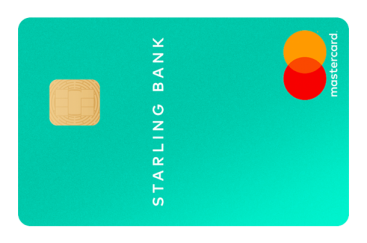
Starling Bank provides banking services for both residents and international students in the UK. The bank doesn’t charge any monthly fees and offers a host of benefits, including a current account, desktop and mobile banking, a debit card, and a decent interest rate of 0.05% on balances.
As an international student, I loved how easy it was to open an account with Starling. No monthly fees and no foreign transaction charges meant I could use my card across Europe without worrying.
The debit card issued by the bank comes with zero international transaction fees, making it an excellent choice for international students studying in the UK or travelling to different parts of Europe.
Starling Bank provides international students with the option of opening a Euro account, which comes with a unique IBAN in the UK, allowing you to hold, send, and receive euros without any monthly fees.
To facilitate easy sign-up, you will only need to provide your passport, university acceptance letter, and student housing address. To access the bank's services, all you need is a smartphone and the bank's app.
Pros
- Fee-free foreign transactions
- Balance interest
- Savings and money management tools
- No monthly account fees or hidden charges
Cons
- Overdrafts come with a 15% APR
- No interest payments on deposits over £85,000
- Limited customer support availability compared to traditional banks
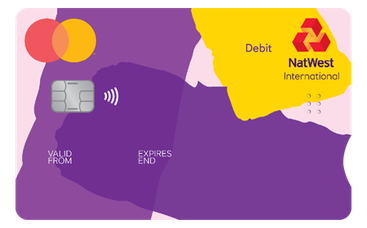
NatWest offers several time-sensitive signup perks on the students' accounts, including a £50 cash bonus and tastecard worth £39.99 per year, valid for four years. The tastecard offer alone adds up to about £160 over the course of four years, making it a better deal than HSBC’s £100 signup bonus.
The cash bonus and tastecard deal with NatWest made me feel like I was getting something extra from my bank. The overdraft helped, but I do wish the starting limit was higher.
The NatWest Student Bank Account is available to students who are at least 17+ years and have lived in the UK for at least 3 years. Only full-time undergraduate/postgraduate students or those in 2-year courses in the UK are eligible.
To open a student account, you’d need a UK government-issued ID, proof of address, and proof of your student status (your 16-digit UCAS code is the best option here).
The account comes with interest-free overdrafts starting from £500 in the first term up to £2,000 in subsequent terms. However, you need to be at least 18 years old before applying for overdrafts online, along with other eligibility criteria.
Pros
- Interest-free overdraft up to £2,000 in the first year
- £50 cash bonus and a tastecard worth £39.99 per year
- Up to £130 cardless withdrawals at ATMs
- Offers flexible overdraft repayment options throughout university life
Cons
- Only those who have lived in the UK for over 3 years are eligible
- Only a £500 overdraft available in the first term
- The account has some restrictions on international students
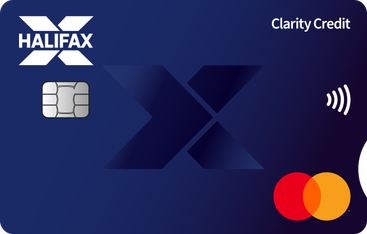
Halifax offers a Student Current Account with an interest-free arranged overdraft of up to £1,500, lasting throughout the course and up to three years after graduation.
The bank provides free banking services with no monthly fees and up to 15% cashback when shopping. Cashback is available with merchants such as Costa Coffee and Just Eat, and your earnings will be added to your account the following month.
The cashback from Halifax was a nice touch, especially when I bought lunch or coffee. I also liked how their app let me freeze my card instantly when I misplaced it once.
The bank's 'Save the Change' feature allows you to round up card payments and put the change in your savings account. This is a great way to build up your funds without having to put aside money yourself.
When it comes to payments, you can use your contactless Visa debit card without providing a PIN for payments up to £100. You can adjust this limit between £30 and £95 using the Halifax mobile app.
The mobile app also provides several features to help manage money. These include a quick and secure sign-in with biometrics on compatible devices, the option to freeze your card if it’s lost or stolen, cheque scanning for payments of up to £5,000 per day, credit scoring, and mobile alerts.
Pros
- Interest-free overdrafts up to £1,500
- Up to 15% cashback
- Save the Change savings feature
- No monthly maintenance fees, making it affordable to maintain
Cons
- Doesn’t accept international students
- No unarranged overdraft
- Cashback rewards are capped, limiting how much you can earn
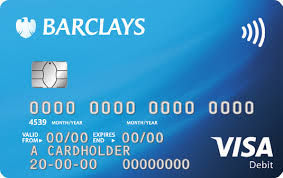
The Barclays Student Additions Account is available to individuals who are at least 18 years of age and studying full-time within the United Kingdom. This account option is available to those pursuing an undergraduate degree (of at least two years in length), a postgraduate degree (of at least one year in length), or a Higher Apprenticeship (Level 4+).
The bank’s mobile app is quite interactive, allowing students to track and monitor their spending in different categories. It can also be integrated with Apple Pay or Android Contactless Mobile, which makes it quite versatile.
Barclays’ app was great for tracking my spending and keeping my finances in check. It’s ideal if you’re a UK student and want a simple account with a reliable overdraft.
Students can begin the application process for this account regardless of whether or not they have received an unconditional or confirmed offer from their university or college. However, account applications cannot be completed until the student has received their official acceptance.
To provide additional assistance to UK students, interest on arranged overdrafts up to a limit of £1,500 is waived. These limits begin at £500 upon account opening, increasing to £1,000 during a student's first year of studies, and capping at £1,500 during their second year and beyond. This account is only available to students who have lived in the UK for more than three years, making it suitable for native UK residents.
Pros
- No monthly fees
- Interest-free overdrafts up to £1,500
- Available to undergraduates, postgraduates, and apprentices
- Versatile app integration with Apple Pay and Android Contactless Mobile
Cons
- Only available to students who are UK residents for at least 3 years
- £6 fee for receiving international payments over £100
- Limited benefits compared to banks offering higher overdrafts and perks
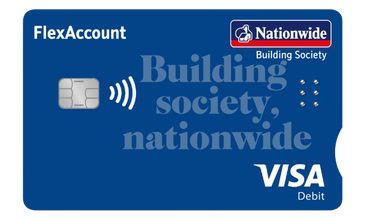
Nationwide’s FlexStudent Account allows students to apply for an interest-free arranged overdraft, starting at £1,000 in their first year, increasing to £2,000 in their second year, and up to £3,000 in their third year.
Moreover, students have the opportunity to earn 5% cashback on their purchases up to £10 per month in select stores, including Asda, Aldi, and Tesco.
The Nationwide FlexStudent Account is much better than its competitors in terms of fees, charging £0 for withdrawals outside the UK, both arranged and unarranged overdrafts, as well as receiving payments from outside the UK.
Pros
- 5% cashback at select retail stores
- Interest-free overdrafts up to £3,000
- Allows students to participate in charity
- Easy to manage finances with flexible online and mobile banking options
Cons
- Cashback is capped at £10 monthly
- You must pay at least £500 per term from when the account is opened
- Only available to full-time students, excluding part-time or non-UK students
How We Review the Best Bank Accounts for Students
While reviewing the best bank accounts for students, we consider a number of factors. Below, we have highlighted the five most important criteria that we use to evaluate each account.
Fees and Charges – We look at the fees associated with a student bank account, including monthly maintenance fees, overdraftfees, ATM withdrawal fees, and more. We want to make sure that you aren’t paying too much for unnecessary services or charges just to maintain your account.
Interest Rates – Student accounts should offer competitive interest rates so that you can get the most from your money over time. In some cases, we may look at the bonus interest rates offered on certain accounts to make sure they are giving you more than what you would get from a basic savings account.
Availability – Many banks impose requirements you have to meet to be able to apply for a student bank account. We want to make sure to select providers with the most reasonable demands.
Perks and Benefits – Many student bank accounts offer different perks and benefits, such as cashback, discounts on goods and services, or access to special events. We factor these benefits into our reviews so that you get the most out of your banking experience.
Overdrafts – Overdrafts can be a great way to avoid additional fees in the event that you don’t have enough funds available in your account. We review each account’s overdraft policies and interest rates so that you know what to expect if you decide to use this feature.
How Do Student Bank Accounts Work?
Student bank accounts are bank accounts specifically designed with students in mind. They typically come with lower fees and more generous overdrafts than regular bank accounts. In some cases, they may also offer other perks, such as discounts on goods or services, free ATM withdrawals, and even cashback rewards.
To open a student account, you will need to provide proof that you are enrolled in an accredited college or university. Once the account is opened, you’ll be able to make deposits and withdrawals just like a regular current account.
What Can You Do With a Student Bank Account?
A student bank account can be used for many of the same day-to-day banking activities as a regular current or savings account. Here are seven things you can do with a student bank account:
✔️ Make deposits and withdrawals from your account.
✔️ Pay bills online or set up automatic payments.
✔️ Earn interest on the balance in your account, if applicable.
✔️ Use a debit card to make purchases.
✔️ Access an overdraft facility if needed, with lower interest rates than traditional lines of credit or student loans.
✔️ Obtain discounts on goods and services, if available.
✔️ Take advantage of any cashback or rewards programs, if available.
✔️ Split money into pots / different accounts to make savings easier. In the UK, this is particularly popular with digital banks.
Interest Rates When Using Student Bank Accounts
Interest rates on student current accounts vary from bank to bank and are affected by many factors. Generally speaking, interest rates tend to be lower than those of a traditional current or savings account because the banks assume that students will not be able to keep large balances in their accounts. It’s important to compare the interest rates offered by different banks so you can find the best rate for your needs.
When it comes to overdraft interest rates, most banks offer lower interest rates on overdrafts for students than they do for regular customers, and some even provide fee-free overdrafts within certain limits.
Common Charges Associated With Student Bank Accounts
While student accounts are generally cheaper than regular bank accounts, there are still some charges you should be aware of when opening and using a student account. Here are some common charges associated with student bank accounts.
Monthly Fees – Some banks charge a monthly fee for student accounts, though some may waive this fee if you meet certain qualifications or criteria. This usually has to do with age or educational status.
ATM Fees – These are the fees charged when you use an out-of-network ATM. This will vary from bank to bank, so it’s important to look into the details of your account before signing up.
Overdraft Fees – Banks typically offer no-interest overdraft for students than they do for their regular customers, but there is still usually a fee associated with using an overdraft facility beyond a certain allowance.
Late Payment Fees – If you don’t make your payments on time, there may be a late payment fee charged.
Transfer Fees – Some banks charge a fee for transferring money between accounts or to another person.
Replacement Card Fees – If you lose or damage your debit card, there may be a fee to replace it.
Check Your Eligibility for a Student Bank Account
Many banks are now offering student bank accounts, and the eligibility requirements may vary from one bank to another. Generally, you will need to meet these four criteria in order to open a student bank account:
1. You must be enrolled in an accredited college or university
2. You must have proof of identity, such as an ID card or driver’s license
3. You must have proof of your enrollment (for example, an admission letter from the school)
4. You must have a valid address and phone number
While these are the basic requirements for opening a student bank account, some banks may require additional information or documents. Before you apply for a student bank account, make sure to check with the bank for a full list of eligibility requirements.
Student Overdrafts
An overdraft allows you to spend more money than you actually have up to a pre-agreed amount. Once agreed, your bank lends you a certain amount of money every month, and you eventually pay it back.
Normally, overdraft charges include interest payments, which vary from 19% to 40%. But no need to fret – the majority of student accounts come with 0% interest overdraft. If your chosen account doesn’t offer 0% overdrafts, you can contact your bank to avoid having an overdraft at all.
One in every five students in Britain frequently finds themselves overdrawn. The odds are that you will be overdrawn, so you should always look for student accounts with 0% overdrafts. It’s a blessing that you should be taking advantage of.
It helps to think of overdrafts as an emergency piggy bank that you can dip into if necessary – it’s a nice thing to have, but you should be striving not to use it. One main difference is that while the money in an actual piggy bank can technically be yours, overdrafts are not. It's tempting to see overdrafts as free money, especially at first, but it's far from it – it’s more so a loan.
There are two different types of overdrafts you should be aware of
Arranged overdrafts – also called planned, authorised, or agreed overdrafts, this is the amount you prearrange with your bank. It’s the amount you are allowed to borrow on a monthly basis. On student accounts, this comes with no interest payments or any additional charges.
Unarranged overdrafts – also called unplanned or unauthorised overdrafts, you dip into the unarranged territory when you exceed the amount you’ve previously agreed with your bank. Banks usually charge fees when this happens, so it’s important to avoid it as much as possible.
When you go into overdraft, or when you’re overdrawn, it shows on your bank statement as a minus number. Let’s say you have £200 left in your account and you’ve spent £300, your account balance will show – £100. If you have £1,000 in arranged overdrafts, your “available balance” will show as £900.
Let’s say that whilst you had £900 left in your arranged overdraft your withdrawal took you to £950. You can then incur a penalty fee on top of this until you’re back on your agreed overdraft and paid back the extra £50. The charge will depend on the terms of your account.
Overdraft limits – how much can you borrow?
The arranged overdraft limits range from £1,000 to £3,000, and banks typically let you increase the amount you can borrow each year:
1st Year – £1,000
2nd Year – £2,000
3rd Year – £3,000
*Limits applicable at Nationwide and HSBC.
Banks are notorious for luring customers in with attractive advertisements, only to reveal the real terms as you dig in. When checking overdrafts, check if the overdraft is “guaranteed” or “up to”.
The former means that if you pass the necessary credit checks, you can get the overdraft at the advertised amount. The latter means that you’ll probably get it if you have a good credit score.
You should note that checking your credit score or banks’ initial checks are considered a "soft check", and don't affect your credit rating. However a “hard check” occurs whenever you apply to increase your overdraft, and it very much does affect your score. The more you have them, the worse it is for your rating.
Before applying for a student bank account, or any new bank account for that matter, it’s good practice to check your credit score. Credit scores ensure banks, and other lenders, that you are a responsible borrower who is able to pay back the loan in time. To be eligible for an overdraft, you need to have a respectable rating.
What is a good credit score?
Credit rating agencies in the UK have five categories for credit ratings: excellent, good, fair, poor, and very poor.
Each credit rating agency (CRA) uses a different scale to determine ratings. While they vary, the differences are usually nominal. This means that if one CTR deemed your credit rating good, there’s a high chance others will as well.
Here’s what scores look like from each of the UK’s largest CRAs:
| Equifax | Transunion | Experian | |
|---|---|---|---|
| Fair | 380-419 | 566-603 | 721-880 |
| Good | 420-465 | 604-627 | 881-960 |
| Excellent | 466-700 | 628-710 | 961-999 |
How long you can have the student overdraft? How long until you have to pay?
Would student overdrafts affect your credit score?
Best Bank Accounts With Student Overdrafts
Here’s a list of the best student bank accounts for overdrafts:
Overdraft Limits | |
|---|---|
HSBC | Up to £3,000 |
Santander | Up to £1,500 in years 1-3, £1,800 in year 4 and £2,000 if you stay on to year 5 |
Barclays | Up to £1,500 after year 2 |
Natwest | Up to £2,000 |
Perks and Benefits of Student Bank Accounts
Besides student overdrafts, unique banking perks also make student bank accounts a very attractive choice.
The kind of benefits you can get vary by the bank, but you can expect to receive discounts and cashback offers from popular retailers, loyalty cards, and perhaps most notably, free travel cards.
We brought together the student accounts with the most valuable benefits on our list:
Perks | How much can you save? | |
|---|---|---|
Natwest | A £100 cash offer upon signing up and a free tastecard valid for four years. A tastecard gives you 2-for-1 meals, either 50% or 25% off at select restaurants, and discounted attraction and cinema tickets. | You can save up to £40 a year. |
Halifax | Up to 15% cashback at select retailers | There are no set limits – you have to check the retailer’s terms, which are available as you redeem your cashback. |
Santander | A free 4-year Santander 16-25 Railcard | You can save £100 for four years, £25 per year (the price of a railcard for four years: £70 for three + £10 for one year). |
Student bank accounts may also grant access to other products of the bank: Nationwide, for example, allows you to open a Flex Instant Saver account which has higher interest rates than its other instant access savings offering.
Similarly, HSBC grants its Student Bank Account holders access to the Regular Saver Account, which has the highest interest rate available.
While there isn't any available at the minute, be on the lookout for bank switching offers – which do what it says on the tin, giving you free money for just switching banks.
How to Sign Up for a Student Bank Account
Opening a bank account as a student can be a great way to stay organized with your finances and avoid potential fees from other financial services. Here's a step-by-step guide on how to open a student account.
Research Your Options
Gather the Necessary Documents
Fill Out the Application
Make an Initial Deposit
Set Up Account Features
How to Choose the Best Bank Account for Students
Finding the right bank account for college students is not as simple as it sounds. With so many banks offering them, it can be hard to know which one to pick. To help you make an informed decision, here are some factors to consider when choosing a student bank account.
Account Fees
When it comes to student bank accounts, fees can add up quickly. It’s important to know what the main account fees are and why they might be charged. For example, some banks charge monthly maintenance or service fees, others may have ATM fees for using out-of-network ATMs, and there may also be overdraft fees or transfer fees.
Overdrafts
An overdraft facility is a great way to protect yourself against unexpected expenses while you’re in college. Banks have different overdraft limits, so choose one that best aligns with your spending needs.
Mobile Banking
In today’s digital world, mobile banking is essential. Many banks offer mobile banking apps that allow you to manage your finances on the go. While some banks may require a subscription fee for access, other banks offer their apps free of charge or as part of their student account package.
Discounts
Many banks offer discounts and special offers for college students, including travel discounts, free shipping, and even discounts at popular stores like Amazon or Apple. If saving money is important to you, it’s worth checking out what deals are available from the various banks.
Customer Service
Customer support is an important factor to consider when choosing a bank account. Look for banks that have representatives who can provide helpful advice and answer questions quickly and accurately. It’s also important to make sure that the customer service team can be reached by phone or email in case of an emergency.
Account Security and Regulation
Finally, you’ll want to make sure that your bank is regulated by relevant authorities like the FCA and insured by the Financial Services Compensation Scheme. This will ensure that if something goes wrong with the bank, you won’t lose any of your money.
Tips on Managing Money as a Student
For most, going to uni is their first experience of living away from home. It’s exhilarating for the most part and as you’ll find out after a month or two, a bit daunting.
Several things cast that vague feeling of dread; having to wash your own clothes, cooking for yourself (or choosing which microwave dinner would have to do), missing your fur buddy, and more often than not, having to manage your own finances.
For many of us, the student loan is the largest amount of money we receive in one go. But remember – you have to make it work for the whole term. Students often find themselves spread quite thin while trying to make it last throughout the semesters and the holiday season. The first and most important thing you can do is to budget.
How to Budget as a Student
While the following may sound very simple, not a lot of students, or even fully-grown adults with jobs and all, fail to take the time and do so. So let’s start by saying that while sticking to your budget is the hardest part, sitting down and crafting one is a close second.
Firstly, add up your total student income. These can include:
Maintenance loans,
Income from a job,
Savings or investments,
Bursaries, awards, scholarships, or grants,
Money from your parents or family.
Once you jotted down all your income, think of your expenses:
Food & drinks,
Bills – gas, water, phone, electricity, wifi, TV license, subscriptions, gym, etc.
Travel costs, including fuel and insurance costs if you have a car,
Accommodation fees
Above make up your essential spending. When you deduct the overall cost of those from your income, what’s left is what you can spend on entertainment, clothes, or other non-essential items.
Once you’ve worked out how much non-essential spending money you have, break it down to a weekly budget and stick to it. There are plenty of budgeting apps and online banks that offer budgeting tools – use them to categorise your spending and set limits for yourself.
Save money for unexpected expenses and special occasions
Plan ahead for events like Christmas or birthdays. If you manage to squeeze some extra each month, you can build an emergency pot for unexpected circumstances like your laptop breaking down or an impromptu trip back home.
Tips for sticking to your budget
Move money around: Don’t let your student loan or savings sit in the same account you use for your everyday purchases – you’ll find that it’s very easy to go slightly deeper than you should have. Move these to a separate account (preferably a savings account where you can earn interest), and set up direct debits to your everyday banking account. This way you’ll be giving yourself weekly allowances, better stick to your budget, and earn some extra on your cash.
Don’t forget to give yourself a buffer: Don’t spread yourself too thin and budget to the very last penny.
Pay for your essentials upfront: The essential spending we discussed above, like rent, food, or travel – arrange these to go out from your account at the start of the month, so that you won’t spend them by accident.
Track your spending: It’s far easier to identify money-suckers when you categorise your spending and know where each penny goes. Monzo’s app offers excellent tools for this (read more about it on our Monzo review) – you can create pots for each spending category, send money into them as per your budget, and spend directly from there.
You can also set up alerts for weekly balance updates, turn on instant notifications for every time you use your card (also good protection for pickpockets), or when your balance falls below a certain amount.
Other Ways to Save
If you find yourself that you’ve been spending more than you earn, just know that it's completely normal. But it also needs addressing. There’s a wide range of options, you can speak to an adviser at your uni, consider your borrowing options, or find (another) part-time job.
But the easiest way to start is to review your spending and see where you can cut it down.
Keep your energy bills down
Do full loads of washing each time. This goes both for clothes and dishes. Make sure that both are set to an economic setting.
Keep the heat in. By closing your blinds or curtains in the evening you can stop the heat loss by up to 17%.
Use smaller pans. The smaller your pan is, the less heat you’ll need. Also keeping the saucepan lids on helps your food heat up faster.
Only boil the water you need. You’ll avoid wasting water and may save on energy.
Don’t leave your laptop or phone on charge to save energy.
Bleed your radiators. Trapped air in radiators can make them less efficient, so it may take longer to heat up the room. This is really a job for your landlord, but it’s not rocket science – you can have a go.
Resist the temptation
A cheeky takeaway or gig tickets every once in a while is not a major problem – but these kinds of purchases, as well as clothes or other items you don’t need can turn into a regularity very quickly. It’s now extremely easy for it to become a habit with the help of quick checkouts and targeted ads that appear on every single platform we engage with.
Your best bet is to make it harder for yourself: out of sight, (hopefully) out of mind. Mute brands on your Instagram or Twitter, unsubscribe from emailing lists, and most importantly, delete your card details from your browser – and perhaps consider not activating Apple Pay or Google Pay.
When you see something you think you can’t live without, sleep on it, and see if you’ll feel the same in the morning.
Don’t fall into the Black Friday trap
Which found that a whopping 98% of products on sale on Black Friday 2021 were actually cheaper, or the cost the same as their Black Friday price at other times in the year.
Despite starting with the best of intentions, Black Friday has turned into an opportunity to encourage overspending with a facade of reduced prices. Instead of waiting for it and potentially being scammed, keep an ongoing list of items you really need and track their price over time.
Avoid food waste
Britain is doing a great job at wasting food: the annual cost of the food we waste amounts to £19 billion. This adds up to £284 for every single person in the country. As a student, you may not max out your personal allowance, but you can still save tons by being mindful of your food shopping and preparation efforts.
The easiest thing you can do is to make a weekly plan and build your shopping list around it. If you can, it’s far easier to stick to a list while shopping online instead of going to a supermarket – you’ll be much less tempted to stray from your list. Whichever way you choose, don’t shop on an empty stomach.
Also, use your freezer wisely. It’s far cheaper to cook in batches and freeze leftovers than to cook from scratch each time. You can and should be freezing food that’s close to its use-by date to have another day and expand this habit into your vegetables or fruit that are about to go bad. If you’re interested, visit Love Food Hate Waste, they have plenty of ideas for leftovers and offer more tips on how to avoid food waste.
Shop wisely
The UK is blessed with a very strong network of charity shops and vintage stores. And no, we’re not talking about shops that sell overpriced vintage-looking clothes, but proper secondhand clothing shops.
Second-hand shopping is not only good for your wallet, but it’s also highly eco-friendly. This goes for books, furniture, or anything else you may need.
A pro tip: Visit the charity shops in affluent areas. You’ll find a bunch of designer clothes and furniture at a bargain – they both look good and tend to be very durable.
Regardless of the type of shop you go for, always ask for student discounts. They are far more widespread than you may think. Also, check online regularly for student discount vouchers and exhaust the perks on your bank account.
Travel for less
Go green. If you can, prefer to walk or cycle – it saves money, keeps you fit, and reduces your carbon footprint.
Book travel in advance. The best time to check for cheap trains is 12 weeks before you want to travel. It’s a bit of a long commitment, but you can save an awful lot by planning ahead.
FAQs
What is the best student bank account?
How do I qualify for a student bank account?
Are there any fees associated with student bank accounts?
What benefits do I get with a student bank account?
Do online only banks offer student accounts?
Are there joint student bank accounts?
Conclusion
Settling on the best student bank account boils down to your individual needs and habits. You'll want to consider aspects such as the size and length of the interest-free overdraft, any monthly or transaction charges, rewards like cashback or discounts, and whether you meet the eligibility criteria. For instance, if you're planning to travel a lot, fee-free international transactions might be key, while others might value a substantial overdraft or a handy sign-up bonus.
Our top recommendation is Santander’s Student Account. It strikes a great balance between flexibility and benefits, offering a gradually increasing interest-free overdraft up to £2,000, which is ideal for managing expenses across the duration of your course. The standout perk is the free 4-year 16–25 Railcard, worth over £100, helping you save a third on train travel across the UK—a valuable benefit for students who often travel between home and university. Moreover, fee-free international ATM withdrawals are a handy bonus for holidays or study abroad.
Ultimately, while other banks offer appealing features, Santander’s combination of overdraft support and travel savings makes it an excellent all-rounder for most UK students.







.jpg)
.jpg)



